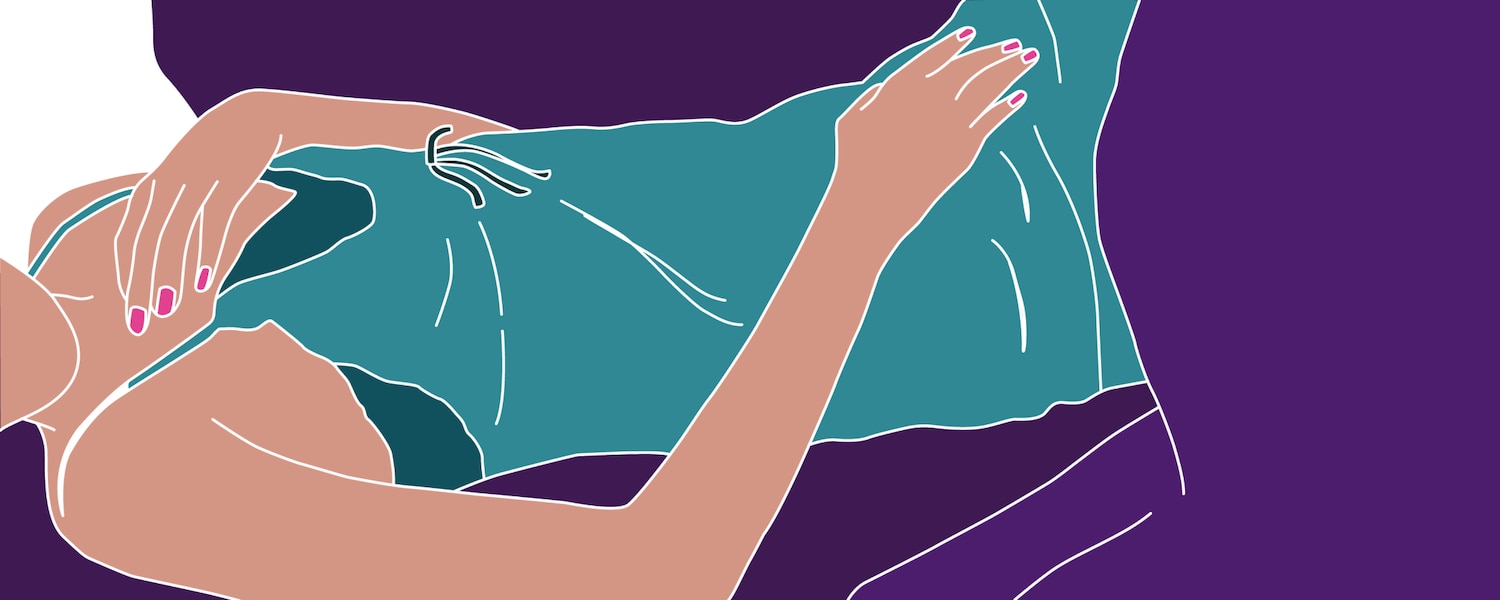What is Perimenopause?

Just when you thought puberty and pregnancy were the only times that your hormone levels could experience such dramatic changes, think again.
You may have heard about menopause, but the story of your periods stopping is so much more than this one moment. Your cycles aren’t a light switch that one day gets turned off, never to be thought about again. It’s more gradual, like the way sunrise happens slowly in the summertime – you notice the changing colours, the air feels different and then after a while, light comes.
The time directly ahead of the menopause is called the perimenopause. It’s when you might start to notice some changes to yourself and your cycle, as your body prepares for the menopause. We’ll give you the full lowdown and all the symptoms so you know what to expect and can feel a little more informed and prepared. It’s worth remembering that everyone with a menstrual cycle goes through this process when they are aging, even though it isn’t often talked about, or shown regularly in the media.
What’s the meaning of perimenopause?
The word perimenopause means “around menopause” as it refers to the natural process of your body transitioning to menopause, as well as the first year afterwards [1]. It’s a time when you may experience various symptoms as your body stops ovulating and having periods regularly.
The menopause is triggered when egg production is no longer possible and your ovaries stop releasing oestrogen. In some women this happens gradually and in others it can be more immediate, meaning menopausal symptoms can have a bigger impact. There’s no predicting how your body will respond to this change, though talking to your mum, auntie, older sister or other female relatives might help to give you a better idea of what to expect!
What happens when egg productions stops?
When ovulation starts to become less regular, so do your periods! The science behind this change is that when there is no egg around to take care of, there is no need to build up the uterine lining, which also means no lining to be shed during your menstrual flow. If you skip a period, don’t be too hasty in getting rid of your period products just yet (by giving them to a local women’s charity perhaps) as irregular periods can be a symptom of perimenopause before they eventually stop for good.
So, what are the signs of perimenopause?
Throughout our lifetimes, our bodies are continually changing: from puberty to adulthood, pregnancy to postpartum, as well as the ebbs and flows of our menstrual cycle. One way to think of perimenopause is as just another gradual physical, mental and hormonal change to the new state of menopause.
The main change of menopause is that the body stops ovulating. Ovulation refers to the moment your ovary releases a mature egg. You start ovulating when you begin getting periods and stop when you reach menopause. Most women are unaware when they stop ovulating, but certain signs experienced during perimenopause can tell you when it’s on the horizon – things like erratic menstrual flow, hot flushes and night sweats.
Like your periods, hormone levels also become erratic during the perimenopause. When ovulation doesn’t occur during your cycle, progesterone doesn’t get produced to trigger menstruation, while estrogen levels continue to rise. This can cause symptoms like spotting during your cycle or a heavy flow when your period does start.
What symptoms of perimenopause might you notice?

The frequency and/or flow of your periods may be affected. One day you may bleed right through your pad and sometimes you may go through a whole month without a spot of blood.

Sudden feelings of heat usually in the face, neck and chest that can leave you feeling hot and bothered as if you’ve drank a few too many glasses of wine, even if you haven’t touched a drop!

These are similar to hot flushes, only these ones occur at night time. They might cause you to wake up feeling hot and sticky, with your pyjamas stuck to your body. Investing in a fan, wearing light clothing and having a cool drink ready on your bedside table can help.

These are similar to hot flushes, only these ones occur at night time. They might cause you to wake up feeling hot and sticky, with your pyjamas stuck to your body. Investing in a fan, wearing light clothing and having a cool drink ready on your bedside table can help.

Let’s face it, we’re not always in the mood for sex; sometimes we’re just too tired, hungry or busy. Menopause can also affect your sex drive, by causing you to have a low libido.

Vaginal dryness doesn’t just occur during menopause but the drop in your oestrogen levels can make you more prone to some irritation, pain and discomfort in and around your vagina, particularly during sex.
Things that help perimenopause symptoms
Irregular and erratic periods during the perimenopause mean they can be heavy one month and light the next, and they may get shorter or last longer. It’s not uncommon to lose track of when your periods begin and end during this time, and an ovulation calculator is unlikely to be any help, as the regular cycle you are probably used to can no longer be relied upon. Some people continue to menstruate for many years after ovulation stops, but their periods may be unpredictable.
It might comfort you to keep track by writing down the dates of your periods or notable flows in a notebook or in your phone notes, so you can refer back to it and spot patterns later. Another thing that may help is to keep a towel handy in case your period suddenly starts, or to wear liners to give you some added confidence and protection. Or you may want to try Period Pants, which look and feel like your regular underwear, but they are absorbent and reusable, offering up to 12 hours of protection. You can shop period pants according to your flow, and you can also get pants which are designed to absorb different types of fluids, including discharge and urine.
If you are struggling with the symptoms of perimenopause, or you are worried for any reason, consult your doctor for help and advice. We also have more information available about various treatment options on our page all about the menopause.
Going through perimenopause symptoms can be overwhelming. Your body that you thought you knew (quite literally like the back of your own hand) suddenly begins changing, and you might have a whole host of new things to deal with. The internal changes can affect how you feel about your body as a whole, and impact your confidence levels.
The main thing to remember is that you’re not alone – everyone with a menstrual cycle goes through this process in the end. Remember how puberty felt with so many changes at once, but you got through that and you’ll get through this too (plus at least acne isn’t involved this time)!
Have you personally experienced perimenopause? We believe that our stories need to be heard, so we can listen, learn and support each other.
Medical disclaimer
The medical information in this article is provided as an information resource only, and is not to be used or relied on for any diagnostic or treatment purposes. Please consult your doctor for guidance about a specific medical condition.
[References]
source-1[1] https://www.imsociety.org/menopause_terminology.php
source-2[2] https://www.womens-health-concern.org/help-and-advice/factsheets/menopause-and-insomnia/
Continue learning


